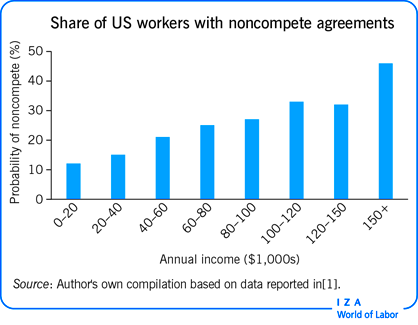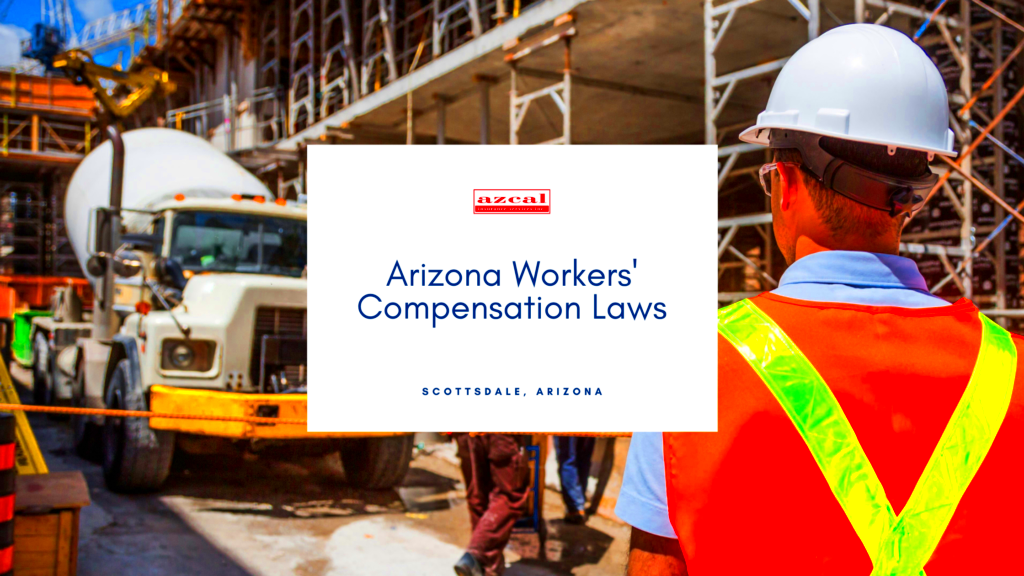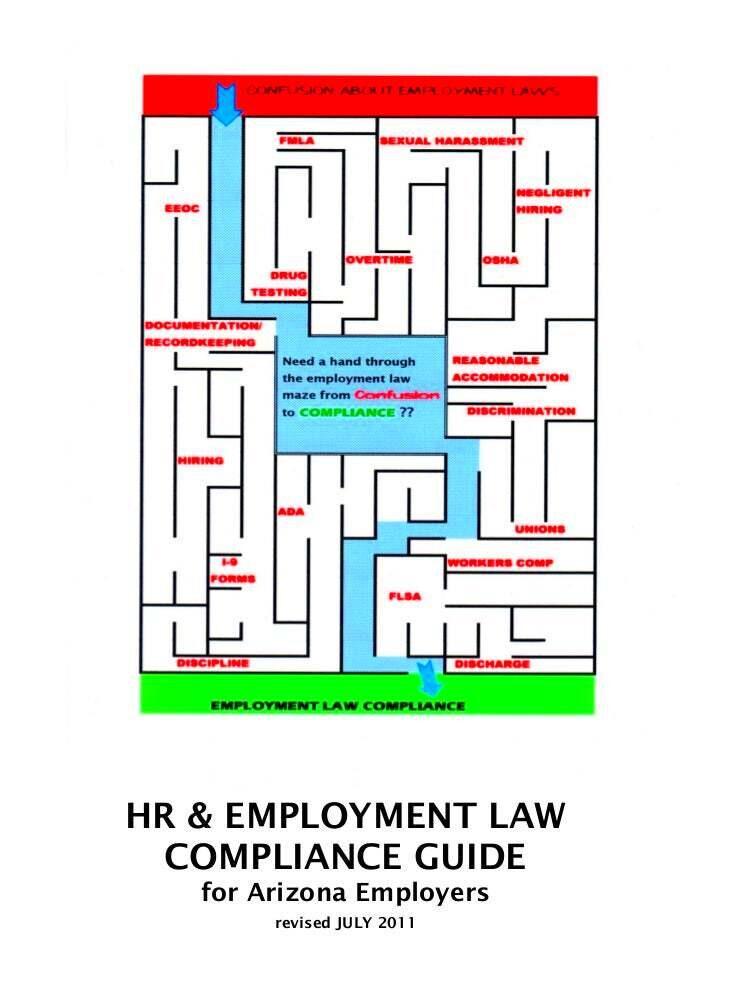Noncompete Employment Law Reform in Arizona
Noncompete agreements have long been used by employers to restrict former employees from working with competitors or starting similar businesses. Arizona, like many other states, has been reviewing its noncompete laws to balance the interests of both employers and employees. Recent reforms aim to provide more clarity and fairness. Understanding these changes is crucial for both employers and workers in Arizona. In this blog post, we’ll explore what these reforms mean and how they impact businesses and employees alike.
Understanding Noncompete Agreements

Noncompete agreements are contracts that limit a former employee’s ability to work for competitors or start a similar business within a specific time frame or geographic area. They are designed to protect trade secrets, customer relationships, and other proprietary information. However, they can also restrict an employee’s career growth or ability to earn a living.
Typically, noncompete agreements include:
- Time Duration: The length of time the employee is restricted from working in a similar role.
- Geographical Scope: The area where the employee is restricted from working.
- Industry or Role Limitations: Specific industries or types of roles the employee cannot engage in.
While these agreements are often enforceable, courts in Arizona and elsewhere carefully evaluate whether they are reasonable and necessary to protect legitimate business interests. Employees should be aware that noncompetes must not be overly broad, and they have rights to contest unfair terms.
Key Changes in Arizona’s Noncompete Laws

Recent reforms in Arizona’s noncompete laws have introduced several changes that benefit employees while ensuring employers can still protect their business interests. Key changes include:
- Shortened Duration: The new laws limit how long noncompete agreements can restrict an employee. Most are now limited to a maximum of 12 months.
- Narrowed Scope: Noncompete agreements must now be more specific regarding the industries or roles they cover. Broad restrictions that prevent employees from working in unrelated fields are no longer allowed.
- Employee Compensation: Employers must provide additional compensation or severance if they wish to enforce noncompete clauses.
These changes are intended to ensure that noncompetes are fair and reasonable. Arizona courts now have clearer guidelines when determining the enforceability of these agreements. Employers must review their current contracts to ensure compliance with the new standards, while employees may have more freedom to pursue new opportunities without the fear of lengthy or overly restrictive agreements.
Impact of the Reform on Employers

The recent noncompete law reforms in Arizona have created significant changes for employers. These reforms may require businesses to rethink their strategies when it comes to protecting trade secrets and sensitive information. For many employers, the most noticeable impact is the restriction on the length and scope of noncompete agreements, which were once more lenient.
Key impacts on employers include:
- Shorter Noncompete Durations: Employers are now limited to imposing noncompete restrictions for a maximum of 12 months, which can limit their ability to prevent key employees from joining competitors in the long term.
- Industry-Specific Restrictions: Employers must now ensure that the noncompete only covers the industries and job roles directly related to the employee’s former position. Overly broad agreements will not hold up in court.
- Compensation Requirements: In certain cases, employers are now required to provide compensation, such as severance pay, in exchange for enforcing noncompete agreements. This adds an extra financial burden on businesses.
While these changes may seem restrictive, they encourage employers to focus more on creating fair agreements that can be upheld in court. It’s now essential for businesses to review and revise existing noncompetes to stay compliant and avoid legal challenges. Employers must also explore other methods of protecting their proprietary information, such as confidentiality agreements and trade secret protections, which remain unaffected by the reforms.
What Arizona Employees Should Know
For Arizona employees, the recent reforms provide more freedom and flexibility when transitioning to new jobs or starting their own businesses. The new laws have been designed to ensure that employees are not unfairly restricted from earning a living after leaving a job.
Here are the main points Arizona employees should be aware of:
- Shortened Restrictions: Noncompete agreements can now only restrict employees for up to 12 months, which means employees have a clearer timeline for when they can pursue new opportunities.
- More Targeted Agreements: Noncompete clauses must be more specific, limiting their scope to only the industries or roles directly related to the employee’s previous job. Broad restrictions are no longer enforceable.
- Compensation Protections: Employees may be entitled to additional compensation if their employer wants to enforce a noncompete agreement. This gives employees some financial security while transitioning between jobs.
Employees who feel that their noncompete agreements are overly broad or unfair may have stronger grounds to challenge them in court. It’s important for employees to carefully review any noncompete agreements they sign and consult with a legal professional if they have concerns about their enforceability.
Enforcement of Noncompete Agreements Post-Reform
Enforcing noncompete agreements in Arizona has become more challenging for employers under the new reforms. Courts now take a closer look at whether these agreements are fair, necessary, and reasonable. Employers must ensure that their noncompetes meet the new legal requirements to avoid having them invalidated in court.
The key factors courts now consider include:
- Reasonableness: The noncompete must be reasonable in terms of time, geography, and scope. Agreements that are overly restrictive are more likely to be struck down.
- Business Interest: Employers must demonstrate that the noncompete is protecting a legitimate business interest, such as trade secrets or specialized knowledge.
- Employee Rights: Courts now give more weight to an employee’s right to work and earn a living, making it harder to enforce agreements that severely limit future employment opportunities.
To comply with the reforms, employers should focus on crafting agreements that are narrowly tailored and reasonable in scope. It’s also wise to rely on other forms of protection, such as nondisclosure agreements (NDAs) and intellectual property protections, as these can still safeguard business interests without restricting employee mobility.
How to Ensure Compliance with the New Law
For Arizona employers, ensuring compliance with the recent noncompete law reforms is essential to avoid legal disputes and penalties. Since the new law imposes stricter guidelines on the enforceability of noncompete agreements, businesses need to take proactive steps to ensure their contracts are valid and enforceable under the updated regulations.
Here’s how employers can stay compliant:
- Review Existing Agreements: Employers should review all existing noncompete agreements to ensure they comply with the new 12-month restriction and are not overly broad in terms of scope or geographical limitations.
- Tailor New Noncompetes: Moving forward, businesses must ensure that any new noncompete agreements are specifically designed to protect legitimate business interests, such as trade secrets or customer relationships. Broad, sweeping clauses will no longer be enforceable.
- Provide Compensation When Necessary: Under the new law, employers may need to offer compensation (such as severance pay) if they wish to enforce a noncompete agreement. This can be particularly important in industries where noncompetes are common.
- Consult Legal Experts: It’s a good idea for businesses to consult with legal professionals who specialize in employment law to ensure compliance. This can help avoid costly litigation down the road.
By staying informed about the changes and adjusting their agreements accordingly, employers can protect their interests while also adhering to the new legal standards.
Conclusion on Arizona’s Noncompete Law Changes
The recent noncompete law reforms in Arizona represent a shift towards greater employee freedom while maintaining a balance that allows businesses to protect sensitive information. Employers now face stricter limitations on how they can restrict former employees, with more emphasis placed on fairness and reasonableness. The changes benefit employees by giving them more flexibility to pursue new opportunities without being unfairly restricted by overly broad agreements.
For employers, compliance with the new law is crucial. Reviewing and revising existing agreements, as well as consulting with legal experts, can help ensure that businesses are still able to safeguard their competitive interests within the boundaries of the new regulations. Overall, these changes mark a significant move towards a fairer balance between business protection and employee rights in Arizona.
FAQs about Noncompete Employment Law in Arizona
What is the maximum duration for a noncompete agreement under the new law?
Under the new law in Arizona, the maximum duration for a noncompete agreement is generally limited to 12 months. Any agreements that impose restrictions beyond this period are likely to be considered unenforceable.
Can noncompete agreements still be enforced in Arizona?
Yes, noncompete agreements can still be enforced in Arizona, but they must meet specific requirements. They need to be reasonable in terms of duration, geographic scope, and industry coverage. Courts are now more likely to reject agreements that are overly broad or restrictive.
What happens if an employer tries to enforce an overly broad noncompete agreement?
If an employer attempts to enforce an overly broad noncompete agreement, it’s likely that the court will either modify the agreement to make it reasonable or refuse to enforce it entirely. Employees can challenge the agreement in court if they believe it is too restrictive.
Do employers need to offer compensation to enforce a noncompete?
In certain cases, employers may need to offer compensation (such as severance pay) if they wish to enforce a noncompete agreement. This adds financial protection for the employee while transitioning to new employment.


